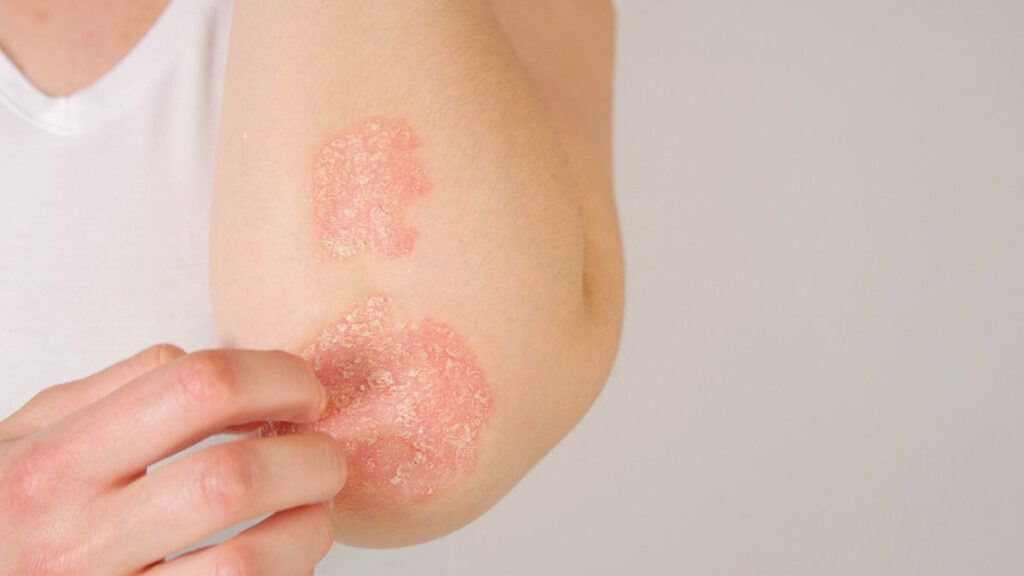eople who have psoriasis have a chronic disease in which the immune system overworks, making skin cells divide too quickly.
Some areas of skin get flaky and red, most often on the head, elbows, or knees, but it can happen anywhere on the body.
Scientists are not sure what exactly causes psoriasis, but they do know that it has to do with both genes and the environment.
Psoriasis symptoms can sometimes go through stages, with flare-ups that last for a few weeks or months and then periods when they go away or go into remission.
For psoriasis, there are many ways to treat it. Your treatment plan will depend on the type of disease and how bad it is. Creams and ointments can often help people with mild psoriasis.
For people with moderate to severe psoriasis, pills, shots, or light treatments may be needed.
To keep the symptoms under control, you can also deal with typical triggers like stress and skin injuries.

People who have psoriasis are more likely to get other serious diseases, such as
- Psoriatic arthritis is a long-term type of arthritis that makes the joints and places where tendons and ligaments connect to bones (entheses) hurt, swell, and become stiff.
- Brain and heart problems, like heart attacks and strokes.
- Health issues with your mind, like low self-esteem, anxiety, and sadness.
- Some types of cancer, Crohn’s disease, diabetes, metabolic syndrome, obesity, osteoporosis, uveitis (inflammation of the middle of the eye), liver disease, and kidney disease may also be more common in people with psoriasis.





